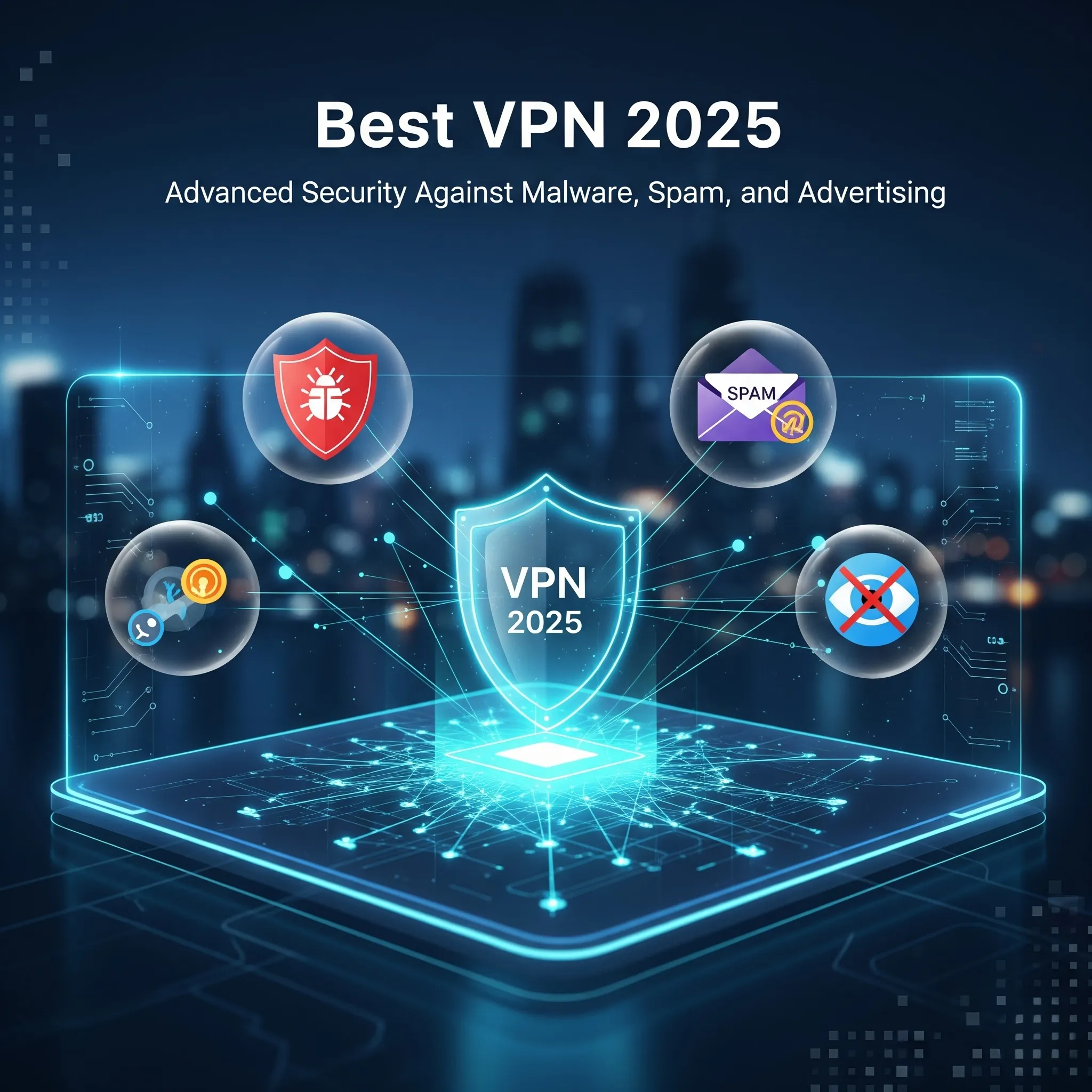
Best VPN 2025
Chapter 1: Introduction to VPNs and the Threat Landscape of 2025
What is a VPN and how does it work?
A VPN, short for Virtual Private Network, is an essential tool for anyone browsing online. Imagine a secure, encrypted tunnel created between your device (computer, smartphone, tablet) and the internet. Instead of connecting directly to a website or online service, your data traffic passes through the VPN servers. This has two main advantages: first, your online identity is masked, as your real IP address is replaced by the VPN server's. Second, all data traveling through this tunnel is encrypted, making it unreadable to anyone trying to intercept it, such as hackers, ISPs, or surveillance agencies. It's like sending a letter in an impenetrable safe.
Why a VPN is more important than ever in 2025
In 2025, our digital lives are more interconnected than ever, but this also brings an exponential increase in threats. With the growing spread of the Internet of Things (IoT), smart devices, and public Wi-Fi connections, opportunities for malicious actors to access our data are constantly increasing. Privacy laws can change, and the amount of personal information we share online is enormous. A VPN is no longer a luxury, but an urgent necessity to protect our privacy and security in this increasingly complex landscape.
Evolution of online threats: malware, phishing, spam, and intrusive advertising
Online threats are not static; they evolve alongside technology. Today's malware is more sophisticated than ever, capable of bypassing traditional defenses and infiltrating systems in unexpected ways. Phishing, the attempt to extract sensitive information by impersonating a trusted entity, is becoming increasingly convincing and hard to detect. Spam is not only annoying but often hides dangerous links. Intrusive advertising, in addition to slowing down browsing, is often linked to trackers that monitor every move online, creating a digital footprint that can be used unethically.
Brief overview of the need for integrated protection
Faced with such a vast and interconnected threat landscape, relying on individual solutions, like a simple antivirus or a separate ad-blocker, may not be enough. In 2025, the integrated protection offered by an advanced VPN is the most effective answer. A VPN that not only encrypts your traffic but also includes malware, spam, and ad-blocking features provides multi-layered defense, creating a digital fortress around your online life. This holistic approach is what makes a VPN the best choice for complete security.
Chapter 2: Essential Criteria for Choosing a VPN in 2025
Choosing the right VPN may seem daunting given the wide market offerings. However, by focusing on some fundamental criteria, you can make an informed choice that best meets your security and privacy needs.
Speed and performance: a balance between security and smooth browsing
Security is paramount, but no one wants to sacrifice browsing speed. A good VPN must offer an optimal balance between strong encryption and high performance. Look for providers using modern protocols like WireGuard, known for their efficiency. VPNs always slightly slow down the connection due to encryption and traffic rerouting, but the difference should be minimal and imperceptible for most online activities, including streaming and gaming.
No-log policy: the importance of absolute privacy
This is a crucial point. A strict no-log policy means the VPN provider does not record any information about your online activity: websites visited, downloads, IP addresses, connection timestamps, and so on. If a VPN does not log these data, it cannot provide them to third parties, even if legally required. Look for providers that have undergone independent audits of their no-log policy, giving you external assurance of their reliability.
Server coverage and geolocation
A VPN's server network is important for several reasons. Wide global coverage allows you to choose among more virtual geographic locations, useful for accessing geo-restricted content or finding less crowded and therefore faster servers. The more servers there are and the better they are distributed, the more options you have to optimize your connection and effectively mask your real location.
Compatibility with devices and operating systems
A VPN must be versatile. Ensure the provider offers native apps for all devices and operating systems you use: Windows, macOS, Linux, Android, iOS, routers, and even browser extensions. Wide compatibility ensures all your devices are protected and that installation and setup are simple and intuitive.
Cost and value for money
Price is always a factor. Free VPNs exist but often involve compromises in security, speed, or data limits, and some may even sell your data. Paid VPNs offer superior service. Evaluate value for money, considering the features offered, the provider's reputation, and the subscription length. Often, long-term subscriptions provide the greatest savings.
